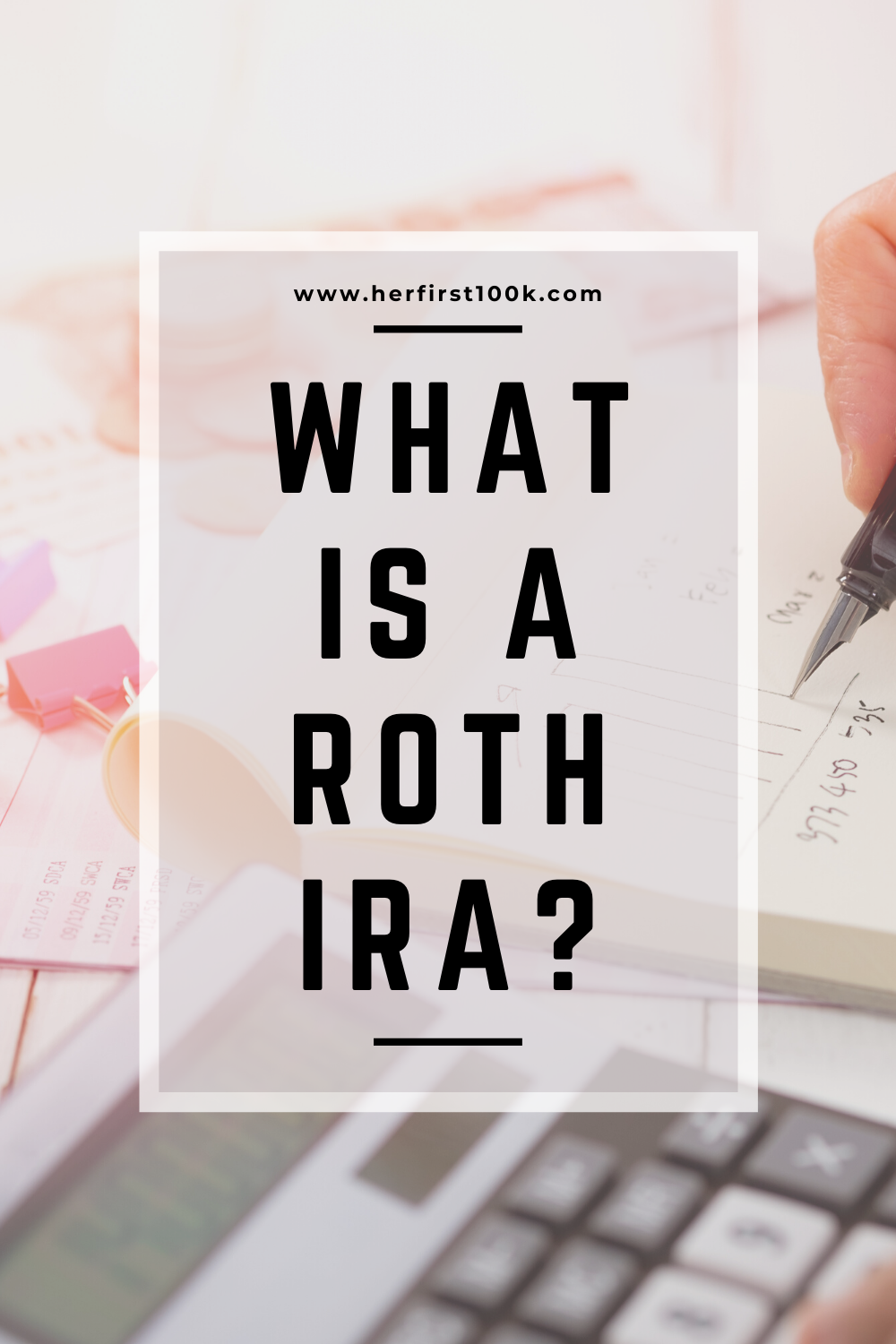The following article may contain affiliate links or sponsored content. This doesn’t cost you anything, and shopping or using our affiliate partners is a way to support our mission. I will never work with a brand or showcase a product that I don’t personally use or believe in.
What is a Roth IRA?
*My legal disclaimer: I’m not a financial advisor. I give education, not prescriptive advice. Choose the right investment strategy for you.*
A Roth IRA is a tax-advantaged retirement account that is not tied to your employer, meaning just about anyone can open one. That’s exactly what the “I” in IRA stands for— Individual Retirement Account.
How it’s different than a 401(K):
Unlike 401(k)s which are usually sponsored by your employer and include an “employer match,” IRAs are tied to you and you only. The max contribution of a Roth IRA is a lot less than a 401(K), but the cool thing is— you’re able to have both! In addition to being an individual account, the other unique difference between a 401(K) and an IRA is that in a normal year, you have 15 months to contribute (instead of 12). For example, you can contribute not just from January to December of 2020, but also from January to Tax Day of 2021. So, you have about three months extra to hit that max.
Before we go further – if you’re a new investor or just looking for a community to join as you begin your investing journey, we’ve built a one-of-a-kind, non-judgemental community where you can learn exactly how to invest, build wealth, and receive exclusive access to Her First $100K.
The three different types of IRAs:⠀
Although I recommend a Roth IRA to anyone who is getting ready to open their first retirement account, I wanted to briefly touch on the two other types of Individual Retirement accounts so you can get a wide-angle view of all the options that are out there.
1) SEP IRA:
This is for all my side hustlers and self-employed people.
Max Contribution: $56,000/ year limit or up to 25% of your income
Taxes: You pay at the time of distribution
2) Traditional IRA:
Like the Roth IRA, this is an individual retirement account, meaning it’s not tied to an employer.
Max Contribution: $6,000/ year or $7,000/ year if you are 50+ years old
Taxes: Like the SEP-IRA, you pay at the time of distribution
3) Roth IRA (my recommended option)
As stated above, this is an individual retirement account, meaning it’s not tied to an employer. You can open one at any age as long as you have a job and unlike a traditional IRA, there are no required minimum distributions.
Max Contribution: $6,000/ year or $7,000/ year if you are 50+ years old
Taxes: You pay the taxes now— this is the biggest difference between a SEP IRA & Traditional IRA and a Roth IRA
You can have both a Traditional and a Roth IRA. However, the total maximum is $6k. You could do $3,000 in one, $3,000 in another, but you can’t do $6,000 in one and $6,000 in the other.
Why I prefer a Roth IRA
I personally like the Roth IRA for a few reasons:
-
It’s like giving the future you a tax-free gift.
-
We don’t know what taxes are going to be in the future, so might as well pay them now.
When should you open a Roth IRA?
First thing’s first:
1) Investing for retirement only comes after you have 3-6 months of emergency savings in a high-yield savings account AND
2) once you have paid off all high-interest debt (like credit cards).
There is one exception, however, that lets you get started on step three without completing step two. This is in the event that you get a 401K employer match that I mentioned earlier.
Have you completed steps 1 & 2 on my financial priority list?
Then you need to start investing today— even if it’s just $20 a month. Retirement may be, without a doubt, the largest expense of your life, and you to be as ready as you can be.



